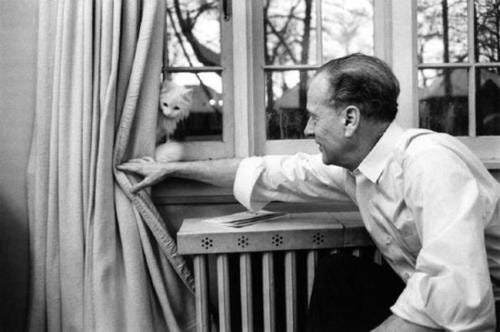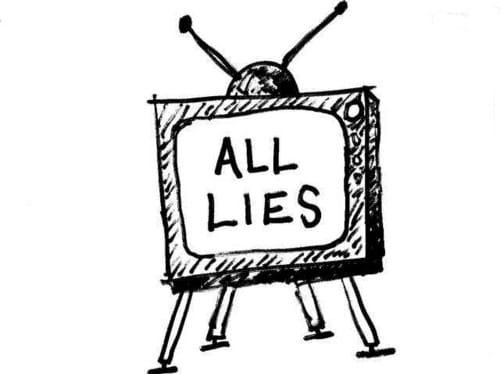Trump’s rise was not merely a political anomaly but a consequence of shifting media environments. Authority, once rooted in the rational, consensus-driven world of print, now emerges from the chaotic, participatory dynamics of electronic media.
In the following interview Marshall McLuhan frames Trump as a “cool” figure—inviting participation, provoking emotional responses, and thriving on ambiguity.
Yet McLuhan’s conservative Catholic perspective adds an intriguing layer. He sees Trump as a symptom of a deeper spiritual crisis, where society’s fragmentation demands a return to contemplation and moral clarity. This raises critical questions for the future of authority: How can leaders balance the immediacy of electronic engagement with the enduring need for wisdom and ethical grounding?

Metaviews interviews Marshall McLuhan
Metaviews: Professor McLuhan, you’ve long argued that the medium shapes our perception of reality more than the content itself. How does this apply to Donald Trump’s election in 2016?
McLuhan: Trump’s victory was not a political event in the traditional sense but a profound transformation in our media environment. He is a product of the shift from a print-based, linear culture to an electronic, participatory one. His campaign—and indeed, his presidency—was perfectly attuned to the fragmented, tribal consciousness that electronic media fosters.
Metaviews: Can you elaborate on this idea of tribal consciousness?
McLuhan: Certainly. Television and the internet dismantle the analytical, detached mindset fostered by print. Instead, they retribalize society, emphasizing immediacy, emotion, and collective identity. In this environment, reason gives way to resonance. Trump’s communication style—his use of memes, soundbites, and tweets—taps directly into this tribal rhythm. He speaks not to inform but to provoke and involve.
Metaviews: You’ve described Trump as a “cool” figure in McLuhan terms. What do you mean by that?
McLuhan: In media theory, “cool” media require high audience participation. Trump’s messages are suggestive and incomplete, inviting his audience to fill in the blanks. This contrasts with “hot” media figures who present detailed, linear arguments. His rallies and tweets are interactive spectacles, drawing people into a shared emotional experience rather than a rational discussion.
Metaviews: What about the broader societal implications? What does Trump’s election tell us about democracy in the electronic age?
McLuhan: It reveals the collapse of consensus. In the print era, shared facts created a unified public sphere. The electronic era fragments that unity, allowing individuals to construct their own realities through algorithmic feeds. Trump thrived in this environment by appealing to emotional truths rather than empirical ones. His victory signaled the triumph of tribalism over universalism.
Metaviews: You’ve often spoken about the global village. How does Trump fit into this concept?
McLuhan: The global village connects everyone, but it also magnifies divisions. The closer we are, the more intense our conflicts. Trump exploited this dynamic, turning every controversy into a spectacle. His presidency was less about governance and more about maintaining a constant state of engagement and conflict, a hallmark of the global village’s discontents.
Metaviews: Given your conservative Catholic beliefs, how do you view Trump’s rise in light of your spiritual convictions?
McLuhan: My faith emphasizes order, tradition, and the search for universal truths—qualities often at odds with the chaotic, relativistic nature of the electronic age. Trump represents a challenge to these values. He embodies the spirit of our time: fragmented, performative, and driven by immediacy. Yet, as a Catholic, I also see his rise as a reflection of society’s deeper spiritual crises, which demand a return to contemplation and moral clarity.
Metaviews: Do you believe Trump’s presidency offers any opportunities for such a return?
McLuhan: The question is not whether Trump himself offers this, but whether society will recognize the limits of the electronic medium and seek balance. The medium shapes us, but it does not determine us. How we respond is the ultimate test of our moral and spiritual resilience.
McLuhan’s analysis offers a challenge. Authority in the digital age must be reimagined—not as a top-down structure but as a dynamic, participatory force. Yet, it must also strive for coherence, guiding fragmented communities toward shared purpose and deeper understanding. In the age of Trump, authority is both fractured and fluid, but our future depends on how we navigate these contradictions.

